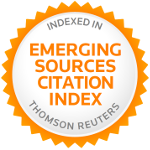Assessing Gamified Experiences in Physical Education Teachers and Students
DOI:
https://doi.org/10.46661/ijeri.4595Keywords:
Active learning,, creative thinking, education, educational games, motivationAbstract
One of the currently booming methodologies is gamification. Gamification in education involves the use of game mechanics in classroom. The game is treated as a motivating element in the classroom, while this methodology is considered active because the student must be active in the learning process. This methodology is considered active because it encourages students to be active in their learning process, making the teaching-learning process motivating and effective. To develop the research GAMEX scale (Gameful Experience in Gamification) is used to measures the gamified experience, this research analysed the gamification experience of 255 students and teachers in Andalusia in the area of Physical Education, a subject in which game-based learning is a widely used methodology. Among the main results obtained, we highlight as conclusions that gamification facilitates the development of creative thinking, a reduction in negative affect, and an improvement in collaboration. The effect of these types of experiences are similar in both students and teachers.
Downloads
References
Ayén, F. (2017). ¿Qué es la gamificación y el ABJ? [What is gamification and GBA?] Iber: Didáctica de las ciencias sociales, geografía e historia, 86, 7-15.
Burke, B. (2014). Gamify. Brookline, MA: Bibliomotion, Incorporated.
Csikszentmihalyi, M. (2002). Flow: The Psychology of Happiness. London: Ebury Publishing.
De-Marcos, L., Domínguez, A., Saenz-de-Navarrete, J., & Pagés, C. (2014). An empirical study comparing gamification and social networking on e-learning. Computers & Education, 75, 82-91. doi: 10.1016/j.compedu.2014.01.012
Deterding, S., Dixon, D., Khaled, R., & Nacke, L. (2011). From game design elements to gamefulness. Proceedings of the 15Th International Academic Mindtrek Conference on Envisioning Future Media Environments - Mindtrek '11. doi: 10.1145/2181037.2181040
Dunn, T., Baguley, T., & Brunsden, V. (2013). From alpha to omega: A practical solution to the pervasive problem of internal consistency estimation. British Journal of Psychology, 105(3), 399-412. doi: 10.1111/bjop.12046
Eppmann, R., Bekk, M., & Klein, K. (2018). Gameful Experience in Gamification: Construction and Validation of a Gameful Experience Scale [GAMEX]. Journal of Interactive Marketing, 43, 98-115. doi: 10.1016/j.intmar.2018.03.002
Erenli, K. (2013). The impact of gamification: Recommending education scenarios. International Journal of Emerging Technologies in Learning, 8(SPL.ISSUE), 15-21.
Fang, X., & Zhao, F. (2010). Personality and enjoyment of computer game play. Computers in Industry, 61(4), 342-349. doi: 10.1016/j.compind.2009.12.005
Hair, J., & Gómez Suárez, M. (2010). Análisis multivariante [Multivariate analysis]. Madrid: Prentice-Hall.
Hamari, J. (2013). Transforming homo economicus into homo ludens: A field experiment on gamification in a utilitarian peer-to-peer trading service. Electronic Commerce Research and Applications, 12(4), 236-245. doi: 10.1016/j.elerap.2013.01.004
Hamari, J., Koivisto, J., & Sarsa, H. (2014). Does Gamification Work? -- A Literature Review of Empirical Studies on Gamification. 2014 47Th Hawaii International Conference on System Sciences. doi: 10.1109/hicss.2014.377
Hanus, M., & Fox, J. (2015). Assessing the effects of gamification in the classroom: A longitudinal study on intrinsic motivation, social comparison, satisfaction, effort, and academic performance. Computers & Education, 80, 152-161. doi: 10.1016/j.compedu.2014.08.019
Hursen, C., & Bas, C. (2019). Use of Gamification Applications in Science Education. International Journal Of Emerging Technologies In Learning (Ijet), 14(01), 4. doi: 10.3991/ijet.v14i01.8894
Kalinauskas, M. (2014). Gamification in Fostering Creativity. Social Technologies, 4(1), 62-75. doi: 10.13165/st-14-4-1-05
Kapp, K.M. (2012). The Gamification of learning and Instruction. San Francisco: John Wiley.
Koivisto, J., & Hamari, J. (2014). Demographic differences in perceived benefits from gamification. Computers in Human Behavior, 35, 179-188. doi: 10.1016/j.chb.2014.03.007
Lee, J. J. y Hammer, J. (2011). Gamification in Education: What, How, Why Bother. Academic Exchange Quaterly, 15(2).
Mansor, A. (2012). Managing Student's Grades and Attendance Records using Google Forms and Google Spreadsheets. Procedia - Social And Behavioral Sciences, 59, 420-428. doi: 10.1016/j.sbspro.2012.09.296
MacKinnon, R., Stoeter, R., Doherty, C., Fullwood, C., Cheng, A., & Nadkarni, V. et al. (2015). Self-motivated learning with gamification improves infant CPR performance, a randomised controlled trial. BMJ Simulation And Technology Enhanced Learning, 1(3), 71-76. doi: 10.1136/bmjstel-2015-000061
Pérez-López, I. y Rivera García, E. (2017). Formar docentes, formar personas: análisis de los aprendizajes logrados por estudiantes universitarios desde una experiencia de gamificación [Train teachers, train people: analysis of the learning achieved by university students from a gamification experience]. Signo y Pensamiento, 36(70), 112-129. doi: 10.11144/Javeriana.syp36-70.fdfp
Perryer, C., Celestine, N., Scott-Ladd, B., & Leighton, C. (2016). Enhancing workplace motivation through gamification: Transferrable lessons from pedagogy. The International Journal Of Management Education, 14(3), 327-335. doi: 10.1016/j.ijme.2016.07.001
Piñeiro-Otero, T. y Costa-Sánchez, C. (2015). ARG (juegos de realidad alternativa). Contribuciones, limitaciones y potencialidades para la docencia universitaria [ARG (alternative reality games). Contributions, limitations and potential for university teaching]. Comunicar, 44(22), 141-148.
Rapp, A., Hopfgartner, F., Hamari, J., Linehan, C., & Cena, F. (2018). Strengthening gamification studies: Current trends and future opportunities of gamification research. International Journal Of Human-Computer Studies. doi: 10.1016/j.ijhcs.2018.11.007
Robson, K., Plangger, K., Kietzmann, J., McCarthy, I., & Pitt, L. (2015). Is it all a game? Understanding the principles of gamification. Business Horizons, 58(4), 411-420. doi: 10.1016/j.bushor.2015.03.006
Rodrigues, L., Oliveira, A., & Costa, C. (2016). Does ease-of-use contributes to the perception of enjoyment? A case of gamification in e-banking. Computers In Human Behavior, 61, 114-126. doi: 10.1016/j.chb.2016.03.015
Roth, S., Schneckenberg, D., & Tsai, C. (2015). The Ludic Drive as Innovation Driver: Introduction to the Gamification of Innovation. Creativity and Innovation Management, 24(2), 300-306. doi: 10.1111/caim.12124
Ryan, R., Rigby, C., & Przybylski, A. (2006). The Motivational Pull of Video Games: A Self-Determination Theory Approach. Motivation And Emotion, 30(4), 344-360. doi: 10.1007/s11031-006-9051-8
Shneiderman, B. (2004) Designing for Fun: How Can We Design User Interfaces to Be More Fun? Interactions, 11 (5), 48-50
Sijtsma, K. (2008). On the Use, the Misuse, and the Very Limited Usefulness of Cronbach’s Alpha. Psychometrika, 74(1), 107-120. doi: 10.1007/s11336-008-9101-0
Quintero, L., Jiménez, F. y Area, M. (2018). Más allá del libro de texto. La gamificación mediada con TIC como alternativa de innovación en Educación Física [Beyond the textbook. ICT-mediated gamification as an innovation alternative in Physical Education]. Retos: nuevas tendencias en educación física, deporte y recreación, 34, 343-348.
Zichermann, G. y Cunningham, C. (2011). Gamification by Design: Implementing Game Mechanics in Web and Mobile Apps. Cam bridge: O’Reilly Media.
Von Ahn, L., y Dabbish, L. (2008). Designing games with a purpose. Communications Of The ACM, 51(8), 57. doi: 10.1145/1378704.1378719
Yang, Y., Asaad, Y., & Dwivedi, Y. (2017). Examining the impact of gamification on intention of engagement and brand attitude in the marketing context. Computers in Human Behavior, 73, 459-469. doi:10.1016/j.chb.2017.03.066
Downloads
Published
How to Cite
Issue
Section
License
Copyright (c) 2020 Creative Commons 4.0

This work is licensed under a Creative Commons Attribution-NonCommercial-NoDerivatives 4.0 International License.









